Fieldwork
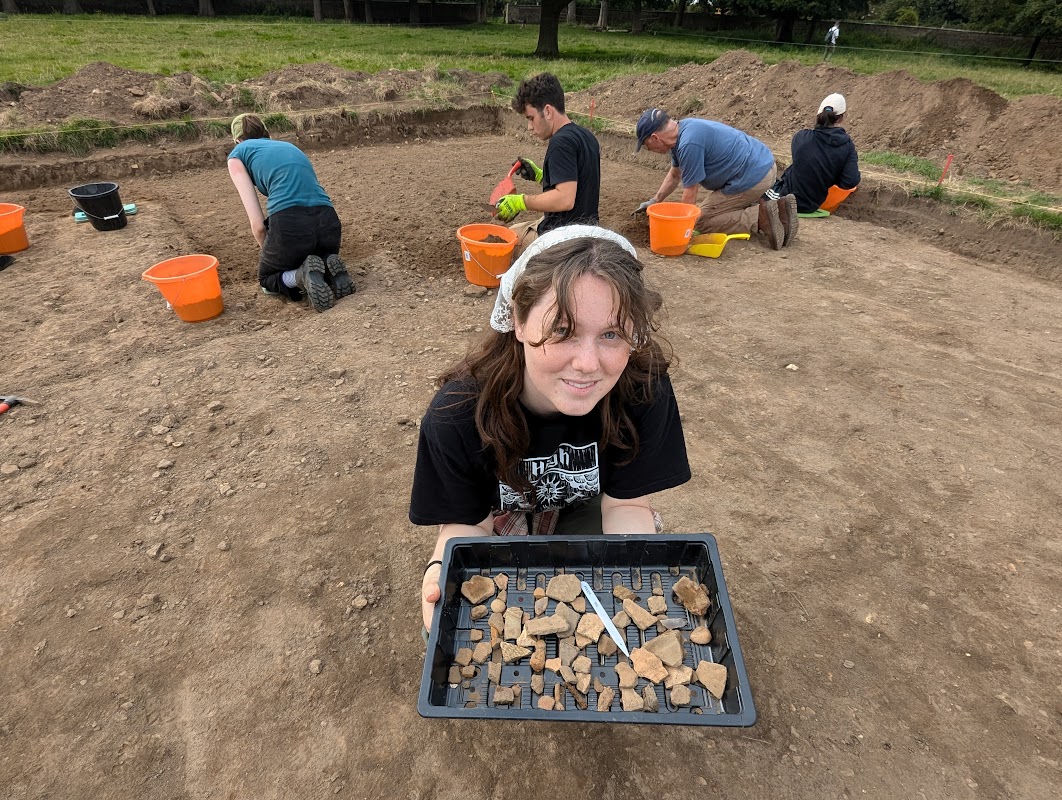
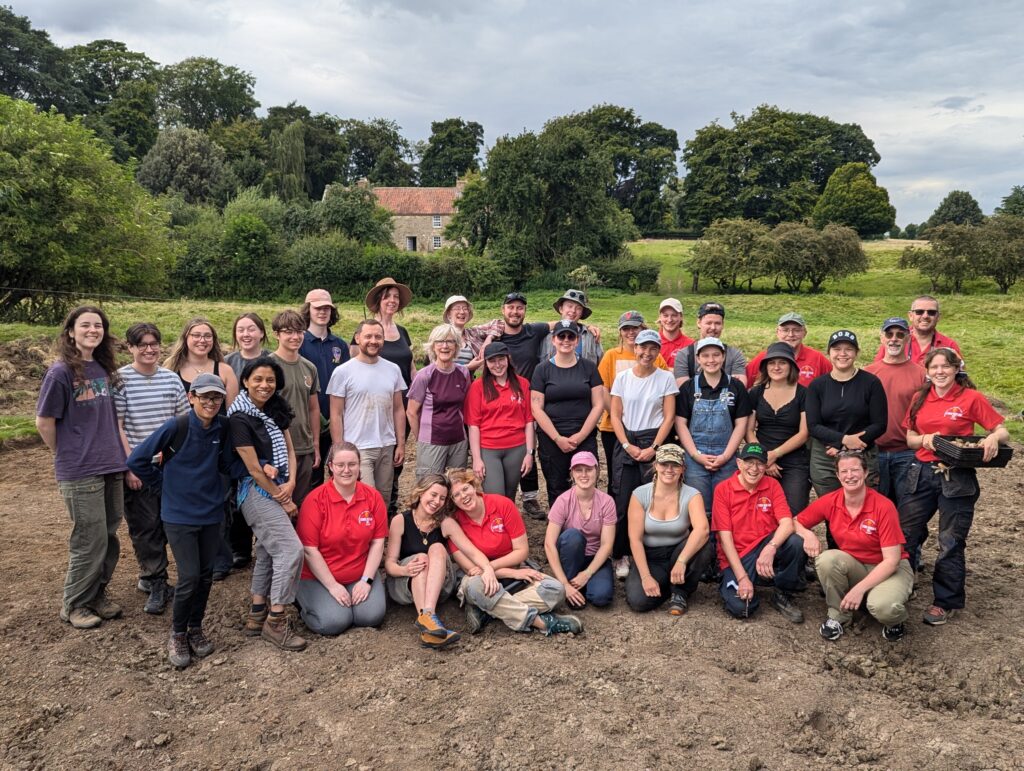
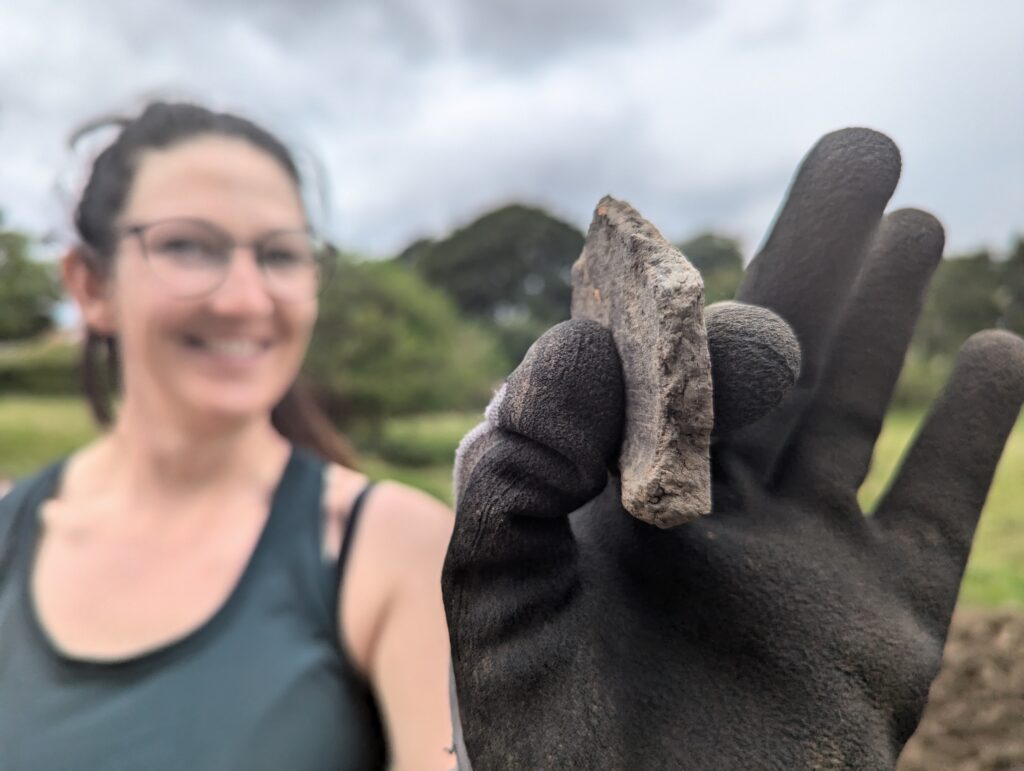
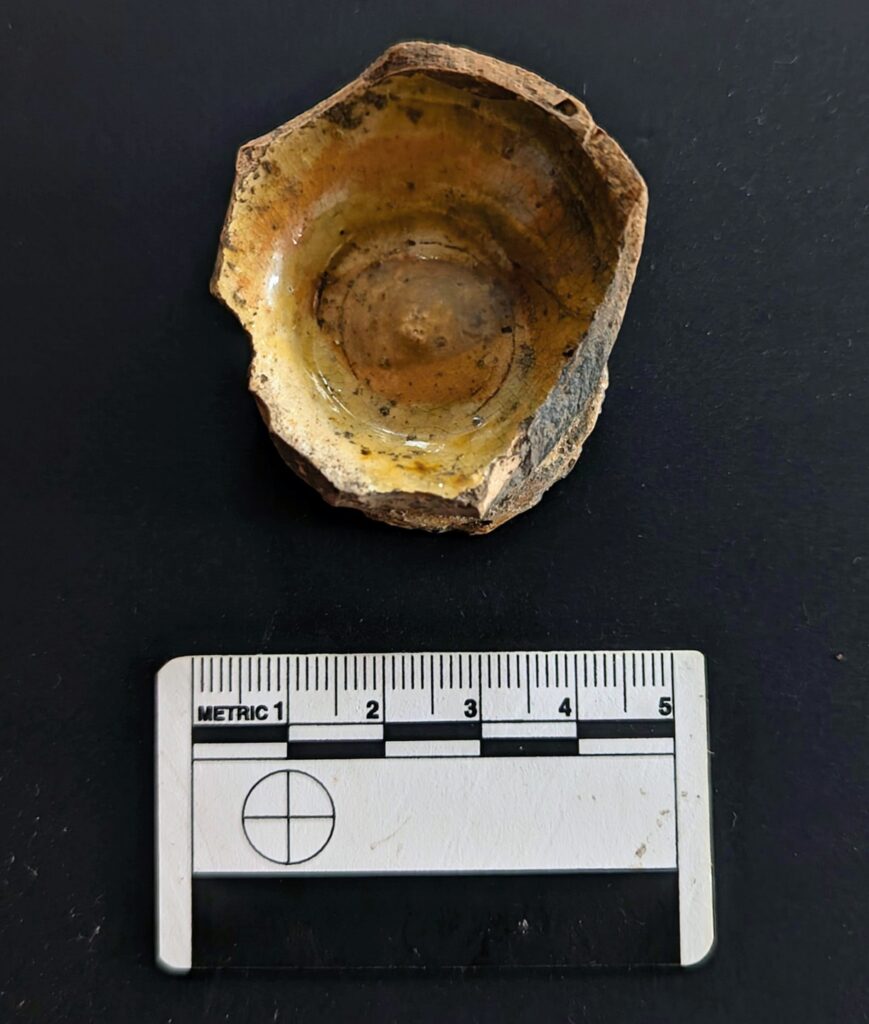

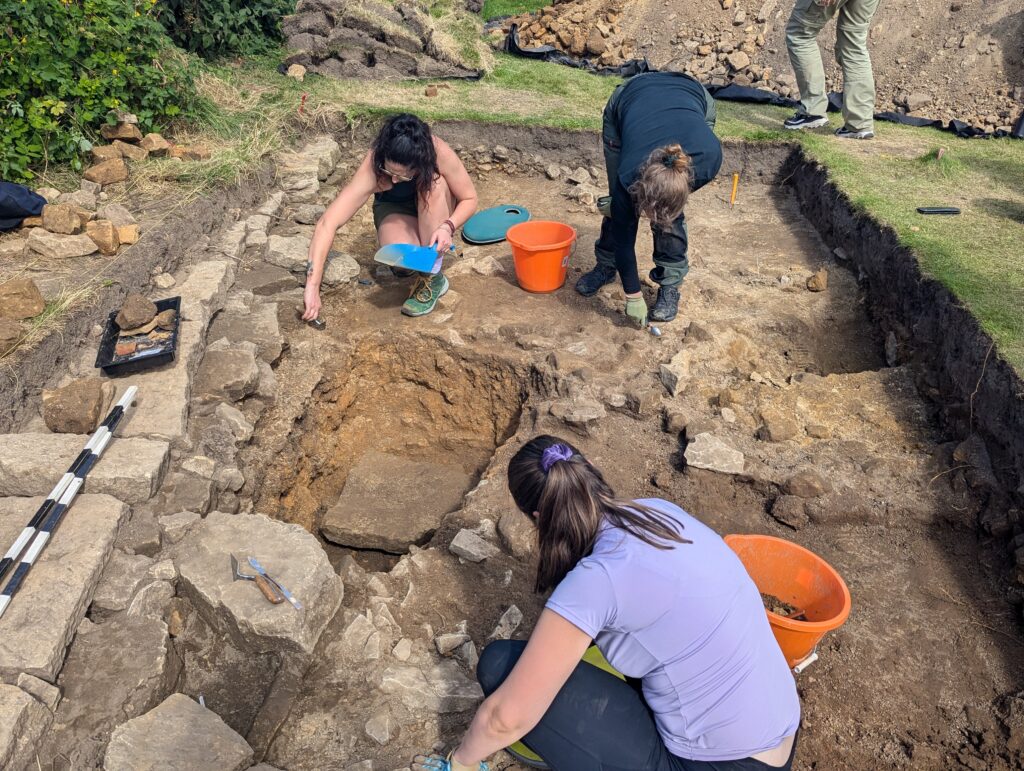
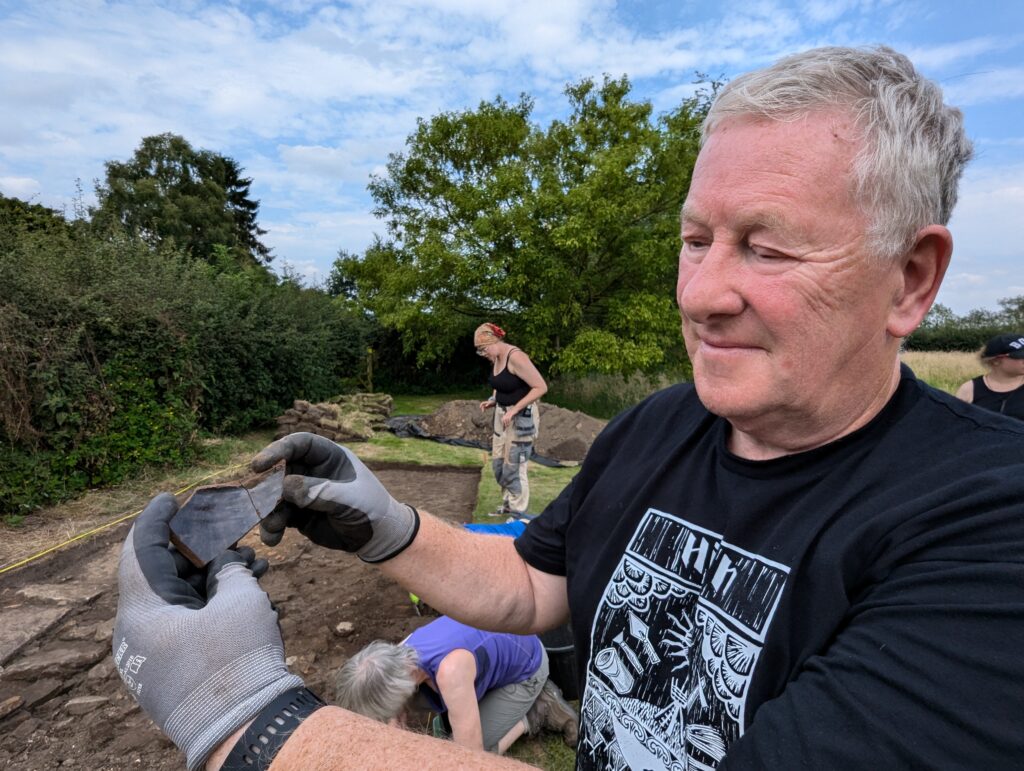
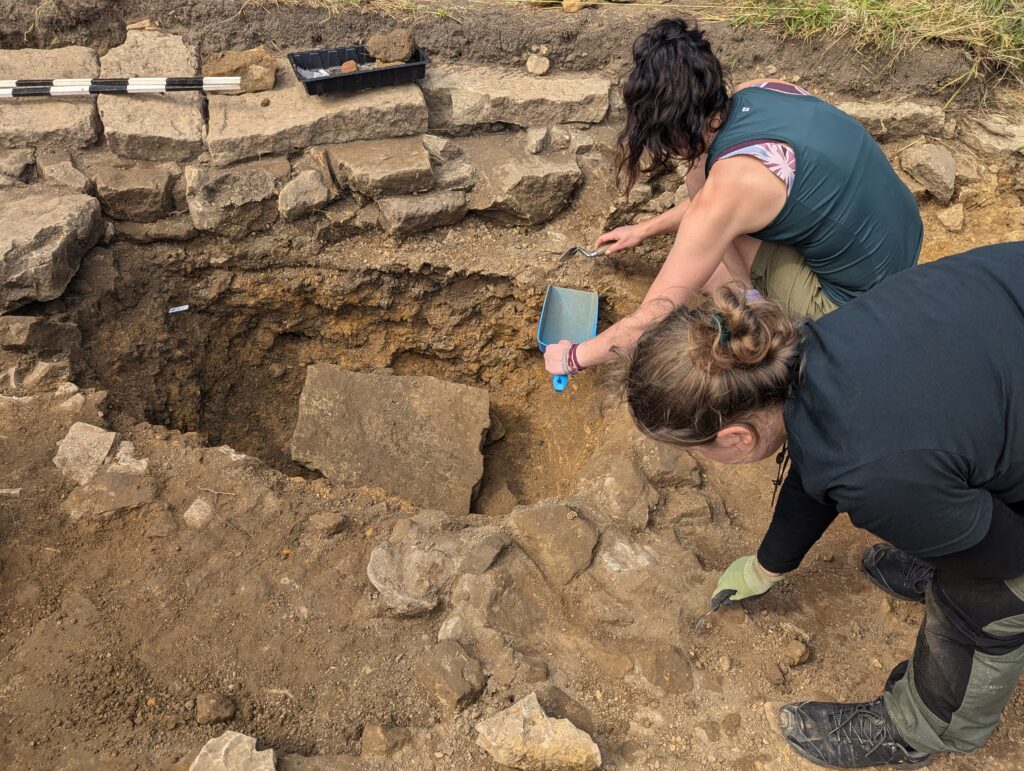

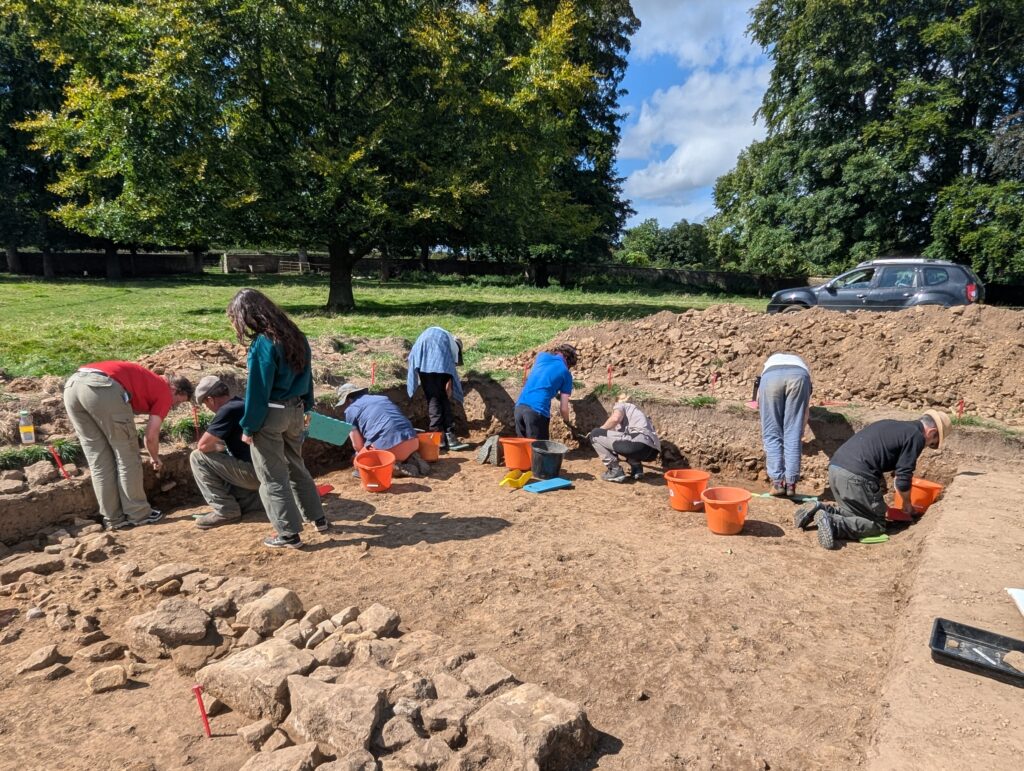
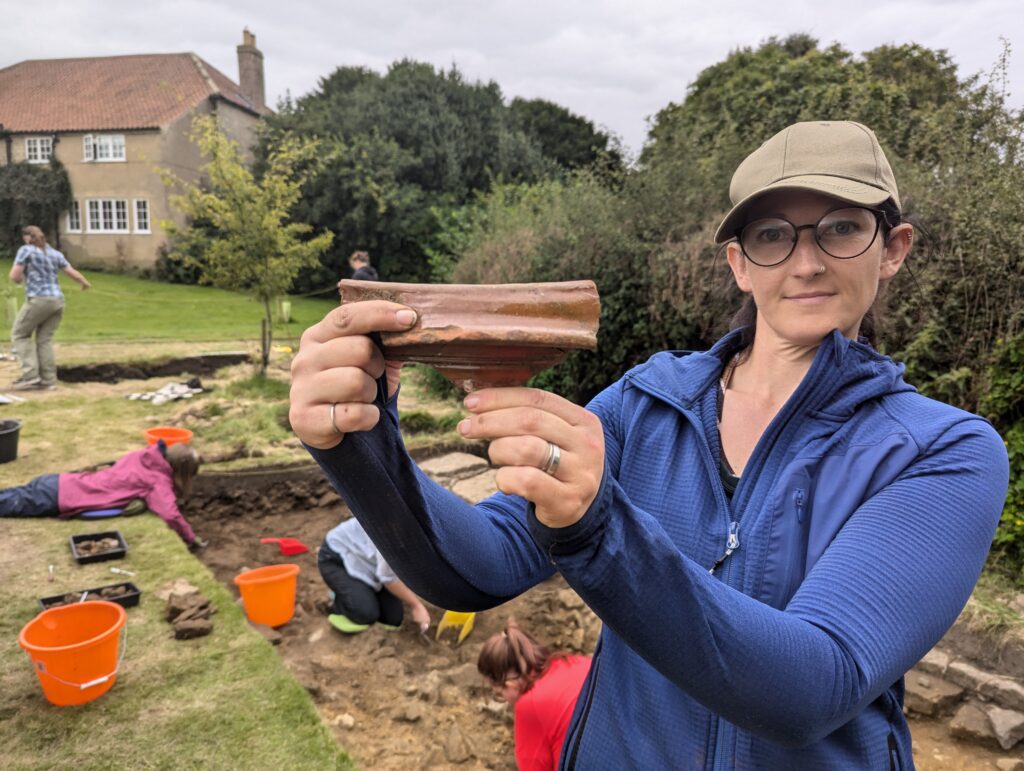
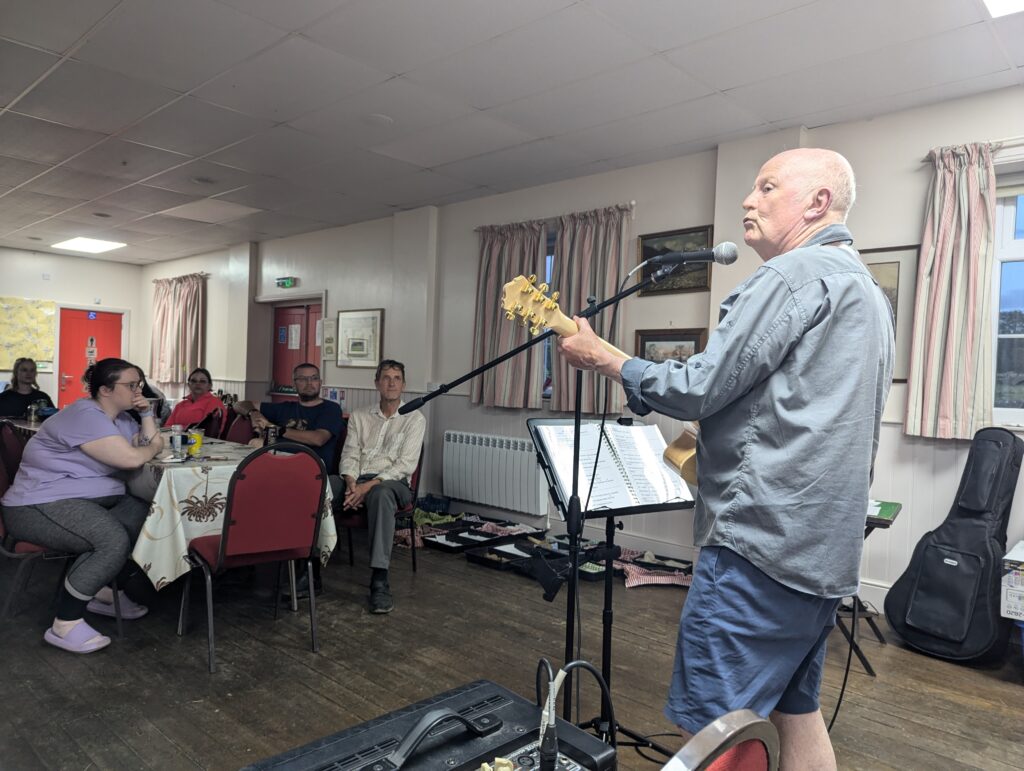
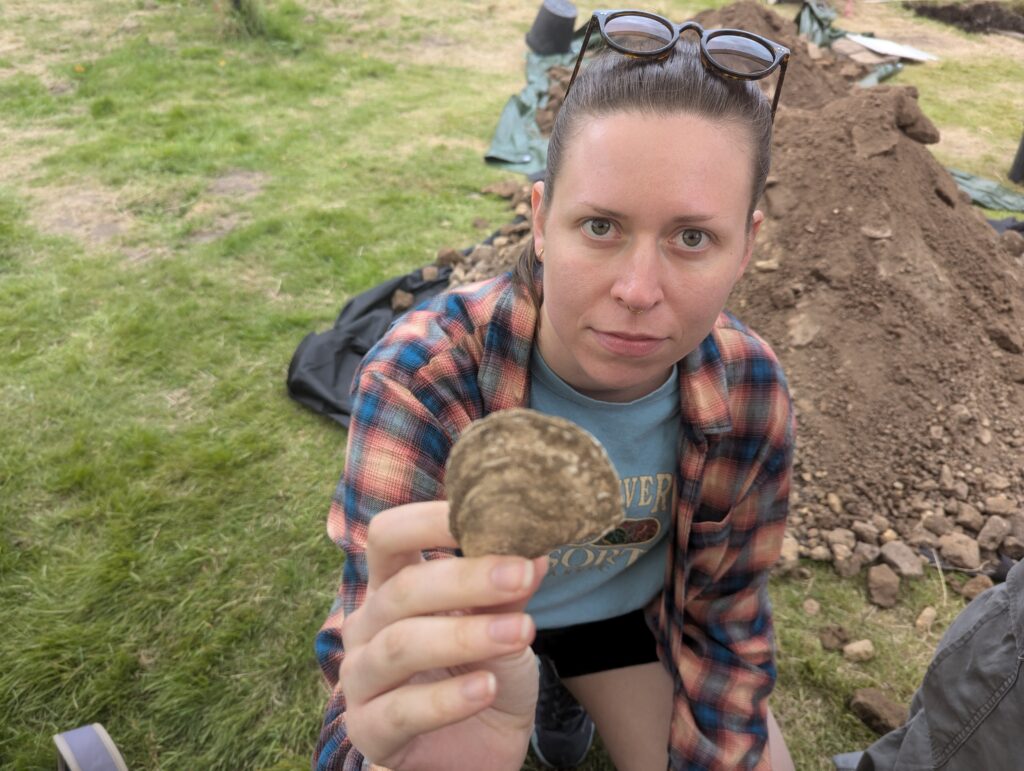
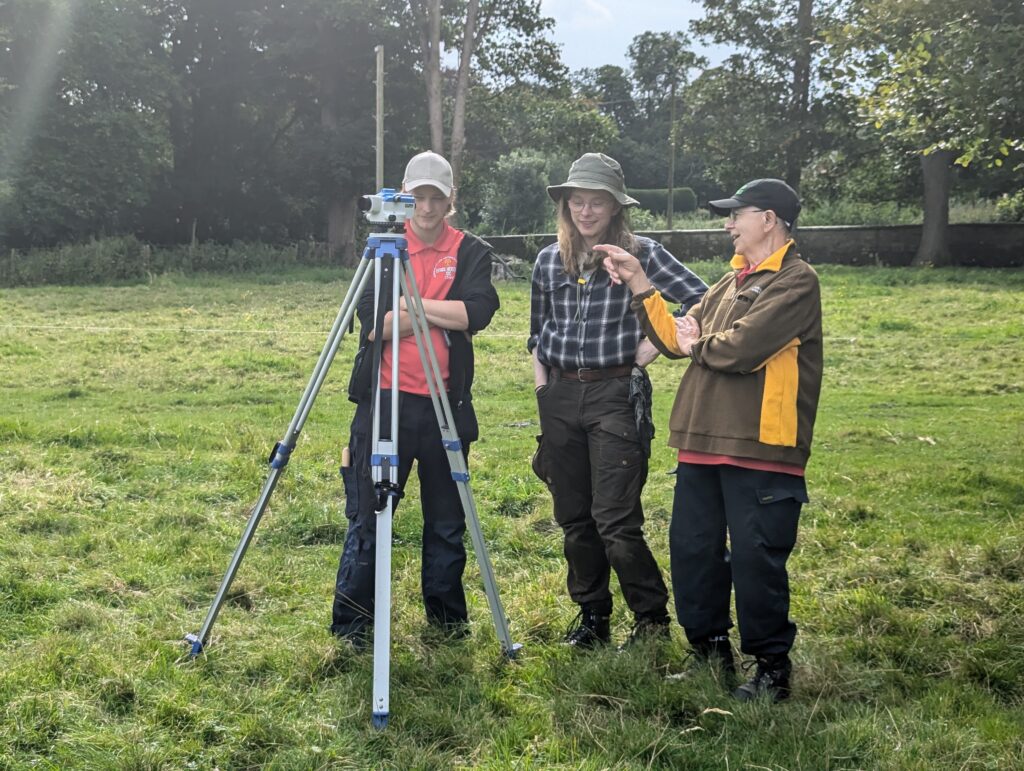
Location: Huttons Ambo, York, North Yorkshire, England
Season: July 19, 2025 to August 10, 2025
Session Dates: Every day
Application Deadline: June 30, 2025
Deadline Type: Rolling
Website: https://www.wdhuk.com/
Discount for AIA members: none
Program Type:
Field School, Volunteer
RPA Certified:
No
Project Director:
Rianca Vogels MA
Project Description:
Come join us at Huttons Ambo, a beautiful rural and ancient village between the City of York and Malton both hotbeds of amazing archaeology.
The aim of the project is to establish the character, form and extent of archaeology that was identified by a comprehensive Geo Physics survey carried out in 2023 as well as targeted trenches in 2024 that uncovered Iron Age, Roman and Medieval archaeology including building structures.
The History and Archaeology
The village of Huttons Ambo is about 14 miles (22.5 km) north-east of York and 3 miles (4.8 km) south-west of Malton. It consists of the villages of High Hutton and Low Hutton. It lies just 4 miles (5km) from the large Roman Fort in Malton
The villages are mentioned in the Domesday book as Hotun in the Bulford hundred. The lands were divided between Cnut, son of Karli, Thorkil and Thorbrand son of Kalri. After the Norman invasion, the lands were split between the King and Berengar of Tosny.
The land at Low Hutton owned by the King, has been named Hutton Colswayn, whilst the land near Hutton Hill has been known as Hutton Mynchon. The land at High Hutton has been known as Hutton Bardolf. All these suffixes indicate the names of the landowners of those times. The Colswayn family may have been given the land by the Crown for duties performed guarding York Castle. The titles passed on to the Bolton family.
The other lands came into the possession of the Gower family, some of whom held the office of High Sheriff of York, such as Sir Thomas Gower. Memorials to members of this family can seen in the Church.
The name Hutton, derives from the Old English hōh tūn, meaning settlement on or by the hill spur. Ambo, the suffix, is Latin indicating the combination of the two villages into the one parish.
Excavations in the 1950s revealed evidence of 12th- or 13th century fortified buildings at the south end of the village of Low Hutton near the river, which is now an Ancient Scheduled Monument. The excavations also identified Roman occupations in the way of coins, pottery and ditches.
Huttons Ambo also lends its name to a specific type of Medieval pottery produced here in the 13th Century. Consisting of large, unglazed storage jars it is a short distance to the major Roman potteries at Crambeck. The excavations hope to cast more light on the Huttons Ambo pottery industry and its location.
The project will provide a unique opportunity to look at a Village that dates back to over 6000 years and is recorded in the Doomsday Book. The project will be using the most up to date archaeological techniques under the supervision of experienced and highly qualified archaeologists.
It will allow investigation of archaeological features that have been identified as well as caring out further work in other areas of the village. Excavations carried out by Ethos Heritage CIC in 2023 and 24 uncovered significant amounts of Iron Age, Roman and Medieval Pottery. The excavations uncovered a 13th Century stone building , a large stone structure dating to the 16th Century with stone recycled from a 13th Century building. In addition a feature surrounded by a large Ditch and Bank was identified that produced Romano British pottery dating from the 1st to 3rd Century
The focus with this years project will be on the following:
1. Investigation of the large building which is over 20 meters (60 feet) in length which we uncovered in 2024. From the artefacts uncurved which we believe it dates to the 16th Century and is made up of reused stone from an earlier building nearby possibly dating to the 13th century. This part of the site produced very large amounts of Medieval Pottery, artefacts and building material. Its been described by two local universities academics as a major discovery. We will be opening a large trenches to establish its layout, function and its layers of occupation
2. Investigation of the bank and ditch that surrounds a possible Romano British feature. This was the focus of geophysical survey with identified features that suggest the presences of wooden buildings and pits. Evacuations in 2024 confirmed the features were archaeological and pits were identified. Large amounts of Iron Age and Roman pottery were uncovered pointing to the presence of as yet unknown Romano British feature possible a Round House or rural farmstead. To investigate this further a large 10 X 10 Meters (30 X 30) will be put in to investigate this are further. In addition a trench will be placed across the bank and ditch to confirm its date and function
3. Continued excavations of the Medieval stone building dating to the 13th Century which may represent a further manor house within the village. This discovery has been recognised as of regional importance and cast new light on the medieval occupation and development of the area. Large amounts of pottery dating to the 13th century has been uncovered in conjunction with the wall uncovered and more of the building lies buried. The focus will be to extend the trenches to expose the southern end of the range as well as a series of post holes that were uncovered in the last two days of the 2024 excavations. These post holes seem to belong to a wooden building of the the same date that appears to have burnt down which is confirmed by the large amounts of burnt daub found.
4. Continued Geophysics Survey of the parish using a variety of techniques including Drones, Metal Detecting, Magnetometer and Resistivity. this is to allow us to identify any other archaeology features especial those connected with the large earthworks connected with the fortified manor alongside our excavations. In addition we will use our boat to take participants on the river to see the landscape from the point of view of a the way peopled travelled normally until the mid 19th century and the coming of the railway
It’s hoped that these investigations will allow an assessment of the significance of Huttons Ambo, and its potential for further exploration on a site of regional importance within the UK.
Excavations
Participants who wish to attend the project will have a variety of options to choose from as follows:
Accommodation
We offer two accommodations options if you wish to stay on site or nearby.
1. Camping with full facilities is provided adjacent to the site with amazing views across the Howardian Hills, an area of outstanding natural beautiful, and overlooks the famous Derwent River. Its only 5mins walk from the excavation area. We will be making use of the village hall for the duration of the project.
The hall which is 20 meters from the camping area has been recently refurbished. It’s a bright, modern, clean venue with comprehensive audio-visual projection facilities and 10Mbit/s wi-fi broadband connection.
It also has a well-equipped kitchen with a food preparation area, sink and a separate crockery/utensil washing area. In addition, it has a modern cooker, microwave, fridge, dishwasher and serving area. The hall has ramp access for disabled users as well a male and female toilet. Additionally, will have 3 dedicated showers for our participants attached to the hall.
We can provide a loan of a tent for a small charge (£15 for the week or £20 for 2 weeks) for people coming in from abroad. This is a two-person tent and will be for a participant’s sole personal use.
A separate camping section is provided for all participants who are under 18 who attend without an adult.
The cost per day for camping will be £15 (under 16 are free).
2. Stay in local Hotels, B&Bs or Lodges close to the village. We can help you with this if required. However, you will be responsible for own transport to site from this accommodation (we can lend a bike if required)
Feeding
Participants who are staying with us will have the option of full board for the days they are staying. This will include a breakfast with a variety of options including Fruit, Cereal, Toast, Eggs, and hot options. Snacks will be provided as well. Lunch will be a variety of hot or cold options plus a variety of drinks. Dinner will be a hot option including potatoes, pasta, rice, vegetables and a variety of drinks.
We provide for all dietary requirements including vegetarian, gluten free and vegan. All meals will be taken in the village halls indoor dining area. For people who which to cook their own food an area will be provided on the camp site to do so and you can eat in the village hall indoor dining area.
People who wish to bring their own food there is an indoor eating area with washing facilities
An indoor washing area with hot water will be provided for all to enable them to wash their eating utensils.
The cost per day for feeding will be £15 which is full board.
Costs Summary:
Excavation:
£30 per day
£20 for students or unemployed
£200 for 7 days
£130 for Students or Unemployed
Under 16 Free, with an adult
Field School (5 days teaching plus 2 days excavating
£250 (non students)
Accommodation
Feeding
£15 per day Full Board (Caters for all dietary and religious requirements)
Other Details
Transport Links To The Site
Buses go once an hour from Malton and from York
We can advise and assist with transport from any part of the UK or if arriving in by Plane.
Supermarkets, shops and bars
The following are in Malton (3.1 miles or 4.9 KM)
Transport from the project will be going in to town most days and we can provide a lift if required.
The project will be running a small shop and bar in the village hall providing items that participants may need.
Phone Reception and Wi-Fi
Phone reception is very good with all network providers. In addition, we will have free Wi-Fi with the village system and another free option with the mobile provider Three.
Phone (Laptop/Tablets) charging is provided free of charge to all participants staying with us.
Eco Policy
The project operates a carbon neutral policy and where possible uses solar electricity, full recycling of all our waste, vegetarian/vegan options.
We provide free fully eco-friendly and recyclable period products
We have 4 bikes (inc. helmets/high vis jackets) for our participants to use free of charge.
Safeguarding
All Ethos Heritage CIC staff are DBS (|UKs official criminal and safeguarding checks) cleared, safeguarding trained, and a trained safeguarding officer in place. Our staff are all First Aid trained and are qualified in Mental Health
Period(s) of Occupation: Bronze Age, Iron Age, Roman, Medieval, Post Medieval
Notes:
Excavations Package Options
Participants who wish to attend the project will have a variety of options to choose from as follows:
1. Attend just for the excavations selecting as many or as few days as you wish. Cost is £30 (£20 for students/unemployed) per day including tea/coffee/squash, toilets, Wi Fi and indoor facilities.
2. Attend 7 days at a reduced cost of £200 or £130 for students/unemployed. This includes all tools/equipment, tea/coffee/squash, toilets, Wi Fi, an indoor seated eating area to eat and socialise including a Bar. This also includes tools, lectures and entertainment during the week.
Transport Links To The Site
Car: There is ample parking in the village in our dig car park
Bike: There is a cycle path to the village
Train: The nearest train station is Malton which is 3.1 miles or 4.9 KM ( You can get a scheduled bus to the village easily (once an hour)
Bus: The is a bus stop in the village and on the main road just 8 mins walk to the village hall. Some buses will drop you in the village alongside the Village Hall which is the project base.
Buses go once an hour from Malton and from York
We can advise and assist with transport from any part of the UK or if arriving in by Plane.
Supermarkets, shops and bars
The following are in Malton (3.1 miles or 4.9 KM)
1. Morrisons
2. Lidal
3. Wide variety of shops, petrol stations and bars
4. Laundry
Transport from the project will be going in to town most days and we can provide a lift if required.
The project will be running a small shop and bar in the hall providing items that participants may need.
Phone Reception and Wi-Fi
Phone reception is very good with all network providers. In addition, we will have free Wi-Fi with the village system and another free option with the mobile provider Three.
Phone (Laptop/Tablets) charging is provided free of charge to all participants staying with us.
Eco Policy
The project operates a carbon neutral policy and where possible uses solar electricity, full recycling of all our waste, vegetarian/vegan options.
We provide free fully eco-friendly and recyclable period products
We have 4 bikes (inc. helmets/high vis jackets) for our participants to use free of charge.
Safeguarding
All Ethos Heritage CIC staff are DBS (|UKs official criminal and safeguarding checks) cleared, safeguarding trained, and a trained safeguarding officer in place. Our staff are all First Aid trained and are qualified in Mental Health
Costs Summary:
Excavation:
£30 per day
£20 for students or unemployed
£200 for 7 days
£130 for Students or Unemployed
Under 16 Free, with an adult
Field School (5 days teaching plus 2 days excavating
£250 (non students)
£200 (Students or Unemployed)
Project Size: 25-49 participants
Minimum Length of Stay for Volunteers: One Day
Minimum Age: 16 Yeas of Age
Experience Required: None required
Room and Board Arrangements:
Accommodation
Camping with full facilities is provided adjacent to the site with amazing views across the Howardian Hills, an area of outstanding natural beautiful, and overlooks the famous Derwent River. Its only 5mins walk from the excavation area. We will be making use of the village hall for the duration of the project. Tent provided.
Feeding
Full Board (£15 per day) or Self Catering Available (Covered in camping fee)
Academic Credit:
None
Emma Samual
Howe Cottage
Huttons Ambo
East Yorkshire
YO60 7HW
United Kingdom
The AIA is North America's largest and oldest nonprofit organization dedicated to archaeology. The Institute advances awareness, education, fieldwork, preservation, publication, and research of archaeological sites and cultural heritage throughout the world. Your contribution makes a difference.
Notifications